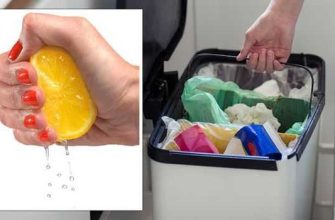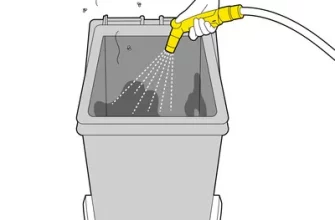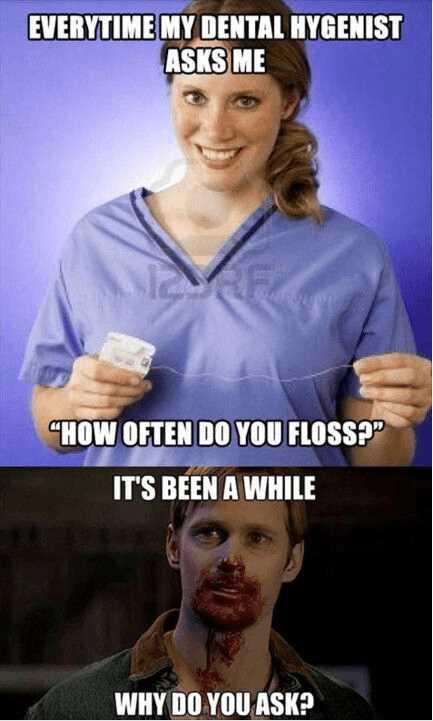
Having your teeth professionally cleaned by a dental hygienist is a normal part of oral hygiene. While it’s not a thing we look forward to, it’s something we must do to maintain our dental health. However, for some people, dental cleanings can be painful. If you’ve ever wondered why dental cleanings can be uncomfortable, here’s a step-by-step breakdown of the cleaning process so you can understand the reasons behind it.
The first thing the dental hygienist will do is thoroughly examine your mouth to assess the overall health of your gums and teeth. Then, they will proceed to remove plaque and tartar buildup using a variety of tools, including a scraping instrument called a scaler. While this might cause some discomfort or sensitivity, it’s a necessary step to prevent further damage and gum disease.
If you have poor oral hygiene and haven’t been flossing regularly, there’s a high chance that your gums will be sensitive and may bleed during the cleaning process. This is a normal reaction and a sign that your gums need extra care. By regularly visiting the dentist and practicing good oral hygiene habits, you can help prevent future painful cleanings.
Another factor that can make dental cleanings painful is fear or anxiety. If you’re nervous about dental appointments, it’s important to communicate this to your dentist or hygienist. They can provide you with tips and techniques to help you relax and make the experience more comfortable. Remember, open communication is key in ensuring a positive dental visit.
In addition, if you have sensitive teeth or gums, experience changes in your dental health, or have been neglecting your oral hygiene routine, your dental cleaning may be more painful than usual. By being proactive and taking care of your teeth and gums at home, you can minimize the discomfort associated with cleanings.
To sum up, while dental cleanings can be uncomfortable, they are an important part of maintaining good oral hygiene. By understanding the reasons behind the discomfort and taking steps to prevent it, you can make your future cleanings less painful. Remember, regular dental appointments and good dental hygiene habits are crucial in preventing dental disease and keeping your smile healthy.
- The Importance of Regular Dental Cleanings
- Prevention of Dental Disease
- Early Detection of Dental Issues
- Improved Overall Health
- Tips for Making Dental Cleanings Easier
- Common Causes of Pain During Dental Cleanings
- Sensitive Teeth and Pain Management
- Why Do Some People Have Sensitive Teeth?
- Managing Pain during Dental Cleanings
- 1. Talk to Your Dentist
- 2. Use Toothpaste for Sensitive Teeth
- 3. Take Over-the-Counter Pain Medication
- 4. Practice Good Oral Hygiene
- 5. Maintain Regular Dental Appointments
- 6. Expect Temporary Discomfort
- 7. Communicate with Your Dental Hygienist
- 8. Take Deep Breaths and Relax
- Improving Comfort: Communication with Your Dental Hygienist
- Dental Cleanings Don’t Have to Hurt: Options for Pain Relief
- Tell Your Dentist or Hygienist
- Ask Questions
- Use Pain Relief Products
- Consider Sedation
- Switch to an Electric Toothbrush
- Take Care of Your Dental Hygiene
- Ask for a Gum Massage
- Plan Your Appointment Well
- Communicate with Your Hygienist
- Don’t Skip Regular Dental Cleanings
- Ask about Pain-Free Options
- Video:
- What Is Airflow Teeth Cleaning and Is It Painful? | Elite Dental Group Singapore | +65 6333 4456
The Importance of Regular Dental Cleanings
Regular dental cleanings are an essential part of maintaining good oral hygiene. Many people may wonder why they need to visit the dentist every six months for cleanings, especially if they brush and floss their teeth daily. However, there are several reasons why regular cleanings are important for your dental health.
Prevention of Dental Disease
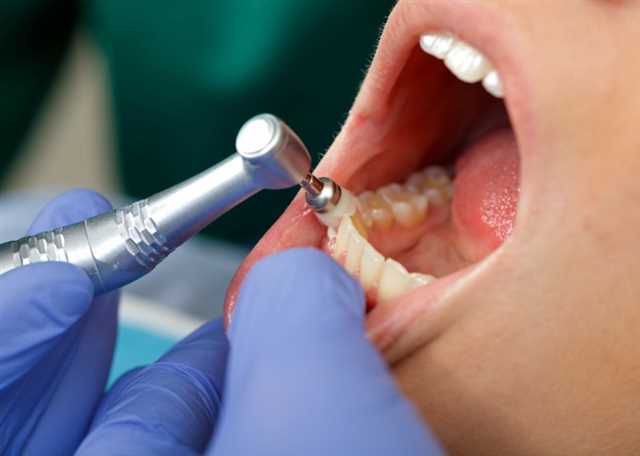
One of the main reasons why regular dental cleanings are necessary is for the prevention of dental diseases, such as cavities and gum disease. Even with proper at-home oral care, there may still be areas in your mouth that are hard to clean. If plaque and tartar build up in these areas, it can lead to tooth decay and gum inflammation. A dental cleaning by a professional dentist or hygienist will help remove the buildup and prevent these diseases from occurring.
Early Detection of Dental Issues
Regular dental cleanings also allow your dentist to detect any dental issues early on. During a cleaning, the dentist or hygienist will thoroughly examine your teeth and gums, looking for signs of decay, gum disease, or other problems. By catching these issues early, they can be treated before they worsen and cause further complications.
Improved Overall Health
Believe it or not, regular dental cleanings can also improve your overall health. Poor oral health has been linked to several systemic diseases, including heart disease, diabetes, and respiratory diseases. By maintaining good oral hygiene, including regular cleanings, you can reduce your risk of developing these health issues.
Tips for Making Dental Cleanings Easier
If you’re one of the many people who fear going to the dentist or find dental cleanings uncomfortable, there are some simple things you can do to make the experience more pleasant:
- Communicate your fears or concerns with your dentist or hygienist. They will be able to address them and ensure you feel comfortable during the cleaning.
- Practice good oral hygiene at home, including brushing twice a day with a soft-bristle toothbrush and fluoride toothpaste, and flossing daily.
- Consider using a desensitizing toothpaste like Sensodyne if you experience sensitivity during cleanings.
- Relax and breathe deeply during the cleaning to help reduce any anxiety or discomfort.
- Ask your dentist or hygienist for tips on how to improve your oral hygiene routine at home.
By following these tips and maintaining regular dental cleanings, you can ensure that your teeth and gums stay healthy and free from disease. So don’t put off your next dental appointment – it’s an important step in taking care of yourself and your oral health.
Common Causes of Pain During Dental Cleanings
During a dental cleaning, it is not uncommon to experience some discomfort or pain. Understanding the common causes of this pain can help you better prepare for your next cleaning appointment.
- Gum sensitivity: Many people have sensitive gums, and when a dental hygienist cleans your teeth, they may accidentally irritate your gum tissue. This can cause temporary discomfort or even bleeding.
- Buildup of plaque and tartar: If you haven’t been diligent about your oral hygiene routine at home, there may be a significant buildup of plaque and tartar on your teeth. The process of removing this buildup can cause some discomfort.
- Enamel erosion: If you have weakened enamel, the cleaning process may cause sensitivity or pain. Enamel erosion can be caused by factors such as acid reflux, excessive consumption of acidic foods or drinks, or aggressive brushing.
- Deep cleaning: If you have gum disease or deep pockets between your teeth and gums, a deep cleaning called scaling and root planing may be necessary. This involves cleaning below the gumline, and the process can be more uncomfortable than a regular cleaning.
- Past dental work: If you’ve had dental work done, such as fillings or crowns, the hygienist may need to be careful around these areas, which could cause some discomfort.
- Not brushing properly: If you don’t brush your teeth properly or use the wrong technique, you may have areas of buildup that cause increased sensitivity or pain during the cleaning process.
- Over-brushing: On the other hand, if you over-brush or brush too hard, you may cause gum recession or enamel erosion, which can lead to sensitivity during cleanings.
- Personal pain tolerance: Some people naturally have a lower pain tolerance than others, so what may be uncomfortable for one person may not be for another. If you’re someone who is more sensitive to pain, let your hygienist know so they can take extra care during the cleaning process.
Remember, dental cleanings are an essential part of maintaining good oral hygiene and preventing dental problems. If you have concerns about pain during cleanings, don’t hesitate to ask your dentist or hygienist for advice or solutions.
Sensitive Teeth and Pain Management
Why Do Some People Have Sensitive Teeth?
One common question patients have when it comes to dental cleanings is what to expect if they have sensitive teeth. If you find that your teeth are sensitive when you brush, floss, or even drink cold water, you may be wondering why this happens.
There are several reasons why you may have sensitive teeth:
- Gum recession: When the gums recede, the tooth roots become exposed, which can lead to sensitivity.
- Tooth enamel erosion: If you have worn or damaged tooth enamel, it can make your teeth more sensitive.
- Tooth decay: Cavities can cause sensitivity, especially if they are deep and close to the nerve.
- Dental procedures: Some dental treatments, such as deep cleanings or root canals, can temporarily increase tooth sensitivity.
Managing Pain during Dental Cleanings
If you have sensitive teeth, there are steps you can take to minimize pain during a dental cleaning.
1. Talk to Your Dentist
If you experience pain during dental cleanings, let your dentist know. They may offer alternative numbing options or adjust their techniques to make the experience more comfortable for you.
2. Use Toothpaste for Sensitive Teeth
Using a toothpaste specifically designed for sensitive teeth, such as Sensodyne, can help reduce sensitivity over time. Make sure to brush with a soft-bristled toothbrush and avoid over-brushing, as this can further irritate sensitive gums.
3. Take Over-the-Counter Pain Medication
If you anticipate pain during your dental cleaning, you can take over-the-counter pain medication, such as ibuprofen, about an hour before your appointment. This can help numb any potential discomfort.
4. Practice Good Oral Hygiene
Maintaining a consistent oral care routine is essential for managing sensitive teeth. Brush your teeth at least twice a day, floss regularly, and use an antiseptic mouthwash to reduce plaque buildup.
5. Maintain Regular Dental Appointments
Regular dental cleanings can help prevent future sensitivity and address any underlying dental issues. By staying up-to-date with your appointments, your dentist can catch problems early on and treat them before they worsen.
6. Expect Temporary Discomfort
It is important to keep in mind that some discomfort during a dental cleaning is normal, especially if you have sensitive teeth. However, the pain should be brief and subside once the cleaning is complete.
7. Communicate with Your Dental Hygienist
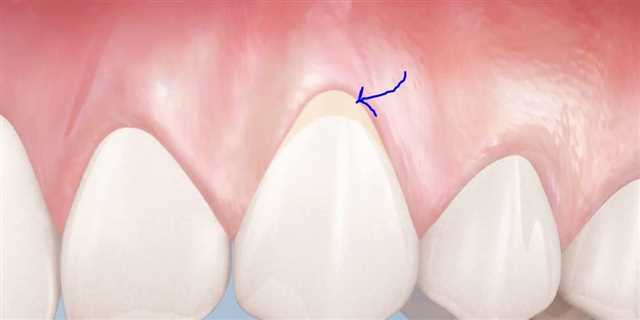
If you are experiencing any pain or discomfort during the cleaning, don’t hesitate to let your dental hygienist know. They can adjust their technique or take breaks as needed to make the process more comfortable for you.
8. Take Deep Breaths and Relax
To ease your anxiety and discomfort, take deep breaths and try to relax. Remind yourself that the cleaning won’t last long and that you are taking a step towards better oral health.
By following these tips, you can better manage the pain associated with sensitive teeth during a dental cleaning. Remember, open communication with your dentist and dental hygienist is key to ensuring a comfortable experience.
Improving Comfort: Communication with Your Dental Hygienist
When it comes to dental cleanings, communication with your dental hygienist is key to ensure a comfortable and pain-free experience. By discussing any concerns or discomfort you may have, you can work together to find solutions that will make your dental cleaning more enjoyable.
First and foremost, let your dental hygienist know if you are experiencing any pain or sensitivity during the cleaning. They will be able to adjust their technique and use gentler movements to minimize discomfort. Remember, a dental cleaning should not be painful, so speaking up will help them make the necessary adjustments to improve your experience.
During the cleaning, your dental hygienist will use water to rinse away the debris and plaque from your teeth and gums. This is a normal part of the cleaning process, but if the water is causing discomfort, be sure to let your hygienist know. They can adjust the water pressure or use a different technique to make you more comfortable.
It’s also important to communicate any existing oral health issues or concerns you may have. For example, if you have sensitive gums or are prone to bleeding, your dental hygienist can implement certain techniques to make the cleaning process easier on your gums. By asking questions and providing information about your oral health, you and your hygienist can work together to customize the cleaning according to your specific needs.
If you find that your teeth are sensitive after a dental cleaning, it is normal and usually temporary. Your teeth may be slightly sensitive to hot or cold temperatures, but this should subside within a day or two. In the meantime, you can use a toothpaste specifically designed for sensitive teeth to help alleviate any discomfort.
Remember, your dental hygienist is there to help you have a positive experience. If you are nervous or have any fears about the cleaning process, don’t hesitate to express your concerns. They can explain each step of the cleaning and answer any questions you may have. By understanding what is happening and why, you may find that your fear and anxiety lessen.
Here are some simple tips to improve your comfort during a dental cleaning:
- Ask your dental hygienist to use a smaller toothbrush if the standard size is causing discomfort.
- Let your hygienist know if you don’t like the taste or texture of the toothpaste they are using, as there may be alternatives available.
- If you are uncomfortable with the angle or pressure being applied during the cleaning, speak up and ask for an adjustment.
- If something hurts during the cleaning, let your hygienist know immediately. They may need to take a different approach or provide additional numbing.
- If you have a question about what is happening or why a certain tool or technique is being used, don’t hesitate to ask. Understanding the process can help alleviate any anxiety or discomfort.
Remember, open communication with your dental hygienist is important for a comfortable cleaning. By expressing any concerns or asking questions, you can work together to ensure a positive experience and prevent any unnecessary discomfort.
Dental Cleanings Don’t Have to Hurt: Options for Pain Relief
If you’ve ever had a dental cleaning that was painful, you’re not alone. Many people experience discomfort during these appointments, but there are ways to minimize or even eliminate the pain. Here’s what you need to know.
Tell Your Dentist or Hygienist
The first and most important step is to let your dentist or hygienist know if you’re experiencing any pain or discomfort. They can adjust their technique or make accommodations to ensure you have a more comfortable experience.
Ask Questions
If you don’t understand what your dental hygienist is doing, ask them to explain the process. Knowing what to expect can help alleviate anxiety and make the cleaning process more comfortable for you.
Use Pain Relief Products
If you have sensitive teeth or gums, using pain relief products like Sensodyne toothpaste can help alleviate discomfort during your dental cleaning. Applying a desensitizing gel or rinse before your appointment may also help.
Consider Sedation
If you have a fear of dental cleanings or experience significant pain, you might consider sedation options. Talk to your dentist about whether sedation could help make your cleaning more comfortable.
Switch to an Electric Toothbrush
If over-brushing is causing your gums to become sensitive, consider switching to an electric toothbrush. These toothbrushes provide a more gentle and effective cleaning process, reducing the risk of gum irritation.
Take Care of Your Dental Hygiene
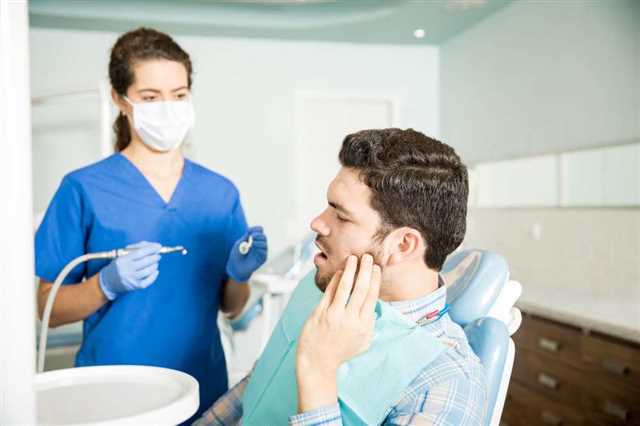
Following good oral hygiene practices at home can help prevent the need for deep cleanings and reduce the risk of discomfort during dental appointments. Brushing twice a day, flossing daily, and using mouthwash can keep your teeth and gums healthy.
Ask for a Gum Massage
If your gums are sore or bleeding during a dental cleaning, ask your hygienist if they can perform a gum massage. This can help increase blood flow and reduce inflammation, making the cleaning process more comfortable.
Plan Your Appointment Well
If you hate going to the dentist, try scheduling your dental cleaning for a time when you’re not rushed or stressed. Having a calm mindset can make the experience more pleasant.
Communicate with Your Hygienist
If you have sensitive areas in your mouth or specific needs, let your hygienist know. They can adjust their cleaning techniques to ensure they avoid any areas that might cause you pain.
Don’t Skip Regular Dental Cleanings
Skipping regular dental cleanings can lead to poor oral hygiene and the need for more intense cleanings in the future. By staying consistent with your appointments, you can prevent the pain and discomfort that comes with neglecting your dental health.
Ask about Pain-Free Options
Modern dental technology and techniques have made dental cleanings more pain-free than ever before. Ask your dentist about any pain-free options they offer, such as laser cleanings or air abrasion.
Remember, dental cleanings don’t have to be painful. By communicating with your dental team, using pain relief products, and taking care of your oral hygiene, you can make your next cleaning a pain-free experience that leaves your teeth and gums feeling healthy and fresh.

